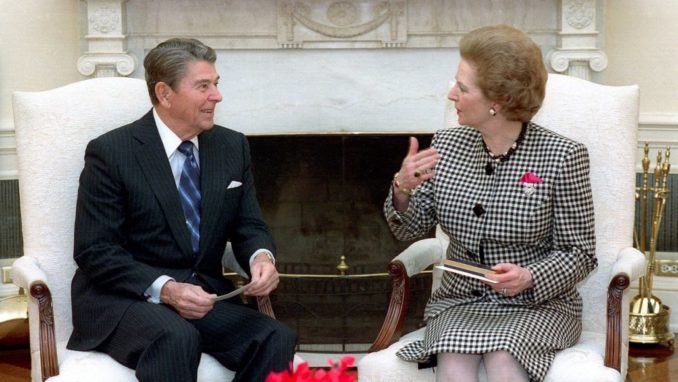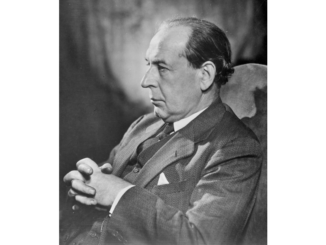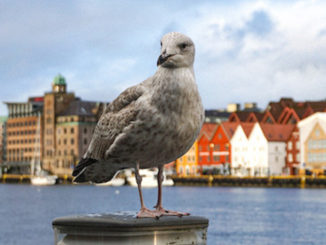
Unknown photographer, Public domain, via Wikimedia Commons
If the opinion polls are to be believed, we are heading for a change of government with a landslide majority and I thought that it would of interest to look at when this has happened before and then what happened next. As this requires a change of government, I shall ignore the large majorities won by Macmillan in 1959, Mrs Thatcher in 1983 and 1987, Blair in 2001 and Johnson in 2019. I shall also not look at the peculiar results in the Thirties when most of the Labour leaders joined an essentially Conservative government but labelled a National government and split their own party, not least out of a sense of duty to King George V who had gone out of his way to be scrupulously fair to a “socialist” government and thus inadvertently caused its most bitter split, leaving Ramsey Macdonald at once both its first and most reviled Prime Minister.
The classic landslide was the great Liberal victory of 1905/6. The politics now seem extraordinary. The Tories under Lord Salisbury had won a “Khaki” election on the back of victory in the Boer War in 1902 but then fell apart spectacularly. Lord Salisbury (Bob Cecil) retired and recommended that his nephew, Arthur Balfour , succeed him (giving rise to the saying “Bob’s your uncle” for good fortune) as Prime Minister. The following year Joseph Chamberlain as Colonial Secretary tore their economic policy apart by disavowing Free Trade for Empire tariffs. His speech was widely reported in the press and Margot Asquith recorded that the following morning her husband, then Shadow Chancellor, came into her bedroom brandishing a newspaper saying “Wonderful news today and it is only a question of time when we shall sweep the country.” The Tories split hopelessly, the young Winston Churchill crossing the Floor, and Sir Henry Campbell Bannerman became a minority Prime Minister without an election simply because the Conservatives were incapable of ruling any longer. An election was then called which gave him 377 Liberal MPs, 53 Labour MPs and 83 Irish Nationalists, both of the latter natural Liberal supporters facing 157 Tories. Balfour himself lost his seat in Manchester but a seat was found for him elsewhere so that he was back for the start of the new Parliament.
Campbell Bannerman died shortly later so that the administration is remembered as Asquith’s who led probably the greatest cabinet in history (compare today’s and weep). Nevertheless the problems of Ireland, the “People’s budget” and the House of Lords and very bad industrial strife meant that in 1910 the Liberals were down to 275 MPs and reliant on increasingly reluctant Labour and Irish support. Asquith struggled on into the First World War but his government fell in 1916, having become a wartime coalition in 1915, after Lloyd George concluded that Asquith, stricken by the loss of his eldest son Raymond on the Somme and generally exhausted , needed to be removed as he would neither govern vigorously nor delegate the day to day running of the War to Ll G, which had been the latter’s original aim.
Asquith. Like Blair and possibly Mrs Thatcher after him simply stayed on too long but his administration was born out of a previous government’s internal policy differences and a whiff of nepotism.
1945 was at the time a far greater shock. Churchill had won the War and was expected to remain in office. The signs were there if only someone had looked. There had been no election for ten years. Only rearming and the war itself had revived the economy, moribund since the Great depression. The lesson of the War seemed to be that the command economy of the war years had been greatly superior to the mass unemployment of the 1930s and the distress in the areas we would now call the Rust Belt caused by laissez faire economics. In addition Attlee and Bevin especially had seemed to run the Home Front very effectively during the war to leave Churchill and Eden to deal with Defence and Foreign policy. The electorate decided to give Labour a chance.
The Attlee government now seems in the eyes of the modern left to have been some lost demi paradise. All manner of industries were nationalised on the grounds the Man in Whitehall knows best. The old patchwork health provision by charities, councils, medical insurance and private medicine was subsumed into Aneurin Bevan’s new NHS but the cost of the Cold War entailed continued high defence spending, Something had to give. Marshall Aid went on the cost of nationalisation not on the investment in new industry. Individuals found wartime rationing worsened due to austerity. People had had enough and Attlee lost his huge majority in 1950 and office the following year.
Attlee’s legacy depends on your point of view. He either went too far too fast or he was fundamentally misguided. His was the one landslide won by the victor rather than lost by his opponents.
This brings us to 1997 and things that can only get better. The present Tory government are depressingly incompetent but for sheer farce are eclipsed by the post Thatcher government of John Major. They seemed hopelessly split on just about everything and a confident press made them out as floating on a sea of sleaze. It is an interesting counterfactual to imagine what wold have happened if John Major’s affair with Edwina Currie had become knowledge at the height of “back to basics”. The government and country would have collapsed in mirth. Their economic policy anchored on membership of the EMU disintegrated in a day and though Kenneth Clark subsequently proved an adept Chancellor, any pretence of competence never returned in the eyes of the public.
Blair’s New Labour had modelled itself on Clinton’s Democratic Party as adapted by Peter Mandelson. Marx’s state socialism was removed and replaced by Gramsci’s ascent through the institutions and they succeeded so well that their people and places remain in place to this day. Blair lasted for ten years of sofa rather than cabinet government based on spin and management of news orchestrated by a talented but malevolent propagandist in Alistair Campbell who was more powerful than any cabinet minister bar Gordon Brown.. Blair was ultimately brought down by an insane foreign war and a civil war with his own chancellor. His success can be counted in that the next Tory PM proudly announced himself to be “Heir to Blair” and not to one of his own predecessors.
What can we conclude ?
Only 1945 seems to have been a triumph of new ideas. 1906 and 1997 were the despatch of two Tory governments that had long since run out of energy and ideas compounded by being composed of inadequate politicians. The diarist Alan Clark writing of 1997 perceptively noted that the Tories were more prone to be routed by Labour than vice versa because Labour’s bedrock core vote was more secure. 2024 will not look like 1945. No new ideas are being advanced and it is simply going to be a change of management. Will it last ? History cautiously suggests a second term especially as the Tories do not seem to have anyone likely to lead them back with confidence at present. Starmer is not a young man and is likely to be exhausted after one term especially as, like Cameron, he will become PM having never previously served in cabinet.
But we must never forget Macmillan’s sage words of the chief concern of any PM, “Events, dear boy, events.”
© Bergen 2024



